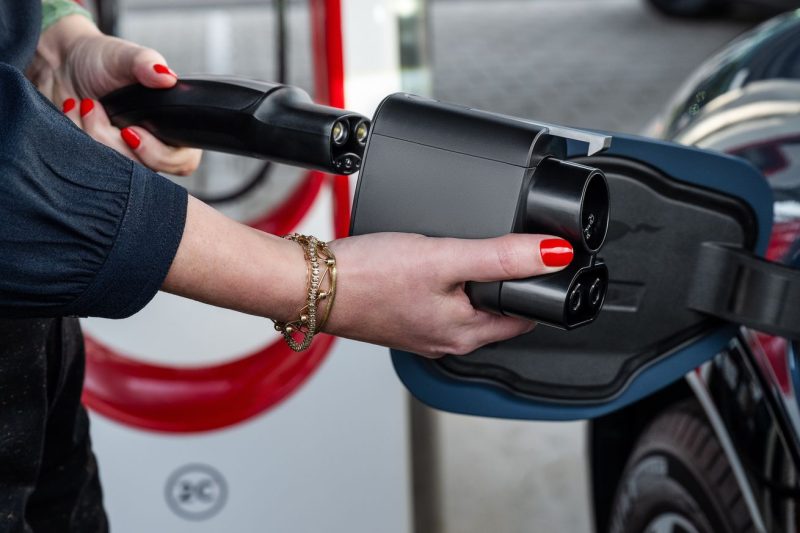In recent news, Ford Motor Company has sent out a notice to certain electric vehicle (EV) customers advising them to discontinue using a Tesla Supercharger adapter with their Ford Mach-E vehicles due to safety concerns. This move has sparked conversation within the EV community and raised questions about the compatibility and safety of using third-party charging adapters.
The Tesla Supercharger network is one of the largest and most well-established fast-charging networks in the world, catering exclusively to Tesla vehicles. The network boasts high-speed charging capabilities that have become a selling point for many Tesla owners. However, other EV manufacturers like Ford do not have access to this proprietary network, leading some Ford Mach-E owners to seek alternative charging solutions using adapters.
Ford’s decision to instruct certain Mach-E owners to cease using Tesla Supercharger adapters stems from safety considerations. The company claims that the use of third-party charging equipment, especially adapters not designed or authorized by Ford, can pose risks to both the vehicle and the users. While the specific concerns have not been detailed publicly, safety is paramount in the EV industry, and any potential risks must be addressed promptly.
This development highlights the importance of using approved charging equipment and following manufacturer guidelines when it comes to electric vehicles. Although the temptation to use third-party adapters to access various charging networks may exist, ensuring compatibility and safety should always take precedence. Manufacturers like Ford invest significant resources in designing and testing charging solutions specific to their vehicles, and deviating from these recommendations could compromise the integrity and safety of the EV ecosystem.
As the EV market continues to expand, standardization and interoperability of charging infrastructure remain key challenges. Different manufacturers utilize varying charging standards and protocols, leading to fragmentation in the market and potential confusion for consumers. While efforts are underway to establish universal charging standards, including initiatives like the Combined Charging System (CCS), discrepancies in compatibility and performance still exist across different networks and vehicle models.
In light of Ford’s recent advisory regarding the use of Tesla Supercharger adapters, it is crucial for EV owners to stay informed about approved charging options and adhere to manufacturer recommendations. Prioritizing safety and reliability in the charging process is essential for the long-term sustainability and growth of the electric vehicle industry.
Ultimately, the ongoing evolution of charging infrastructure and standards will shape the future of electric mobility, emphasizing the importance of collaboration and adherence to best practices among manufacturers and stakeholders. As consumer demand for EVs continues to rise, ensuring a seamless and secure charging experience is paramount to building trust and confidence in electric transportation.
In conclusion, Ford’s decision to caution certain Mach-E owners against using Tesla Supercharger adapters underscores the significance of following manufacturer guidelines and prioritizing safety in the EV charging ecosystem. By promoting responsible charging practices and encouraging industry-wide collaboration, we can pave the way for a more interconnected, efficient, and sustainable electric vehicle future.

























